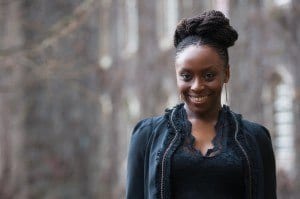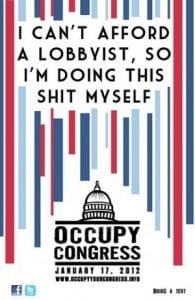
“Culture does not make people. People make culture.”
Seemingly by popular demand Nigerian writer Chimamanda Ngozi (the ‘n’ pronounced as its own syllable, tongue placed against teeth) Adichie has just released in eBook format her “We should all be feminists” TED Talk, popularized, to Adichie’s dismay, by American recording artist Beyoncé, who sampled the speech on her eponymous and most recent album.
Dismay, not for Beyoncé, but for the free endorsement, and perhaps the belittlement of her intellectual rigor, as her words become part of the pop song medium. Yes, Beyoncé will always be Queen B. But let’s allow Adichie to be realized for what she is. A revolutionary. One whose connection to the formerly mentioned stops at this one similarity: Beyoncé and Adichie both identify as feminists.
Chimamanda Ngozi Adichie is perhaps the best example of a feminist today.
Now, “feminism” has a long and fluid history in the English language, and I do not mean to say that it is not subject to change and hasn’t experienced many. But, for the thousandth, if not millionth time, feminism promotes equality. Feminism promotes equality. Feminism does not mean you hate men. Feminism addresses the intense scrutiny women face for their choices, the same choices that would be understood or accepted had a man made them.
This is not an exaggeration or an overreaction. And thank goodness writers like Adichie have found the voice to express the hardships people of all genders face due to sexism. As Adichie puts it in her new essay, The problem with gender is that it prescribes how we should be rather than recognizing how we are.
Addressing the always-ridiculous arguments against feminism openly, honestly, and calmly allows Adichie to penetrate the thick skulls of naysayers. And with gusto. She finds ways to bridge gaps, not just across genders, but across countries, across continents, across people. In fact, Adichie does something special with her stories, something vital to the feminist movement, but also larger than it.
With stories as unique as they are inspiring, Adichie’s prose formula takes cues from predecessor Chinua Achebe while also managing her own, often semi-autobiographical voice. What distinguishes Adichie, as a feminist and as a writer, is not her history in itself, but rather, the genuine fascination and admiration she has for home and family and the past. She is emotionally tied in the right way.
Our histories cling to us. We are shaped by where we come from.
Chimamanda Ngozi Adichie understands about humanity, in a challenging yet straightforward way, that people are complex, people are multifaceted, and people are subject to context. That is, her stories recognize and embrace political and social issues while still capturing the stories of developed, emotional characters. But how does all this stuff about writing stories relate to feminism?
Exactly.
Were Adichie to write a novel or short story about feminism, well, that would be disappointing. What makes her writing so accessible is its ability to maintain many separate but valid angles. An Adichie story is composed of a series of angles. One of these angles is feminist. Another is Nigerian. And so on. But one angle does not overshadow another. So long as the emotionally coherent human being remains the root of each angle, so long as these are not vague generalizations but grounded experiences, then an emotional record of history is appropriate, and there will be light shone on any issue. That is why Adichie’s approach to feminism is crucial—because it is meant for those who do not already understand it. (Just as her novels detail life in Nigeria for the non-Nigerian to understand.)
And maybe without realizing it, Adichie has said of her writing something better than anyone else could:
The novels I love, the ones I remember, the ones I re-read, have an empathetic human quality, or ’emotional truth’. This quality is difficult to fully define, but I always recognise it when I see it: it is different from honesty and more resilient than fact, something that exists not in the kind of fiction that explains but in the kind that shows.
So here’s to hoping, in the not-so-distant future, that for every Shailene Woodley, there is at least one more Chimamanda Ngozi Adichie. Give this writer the attention she deserves.















